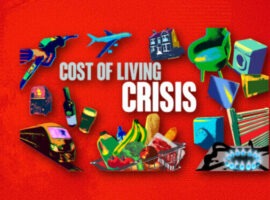Corporate social responsibility and sustainability: How to save the earth
 Today corporate social responsibility must include sustainability. Discover examples, definitions, and how to attain sustainable commerce.
Today corporate social responsibility must include sustainability. Discover examples, definitions, and how to attain sustainable commerce.
Corporate social responsibility has become a priority for many organizations as more consumers, investors, and employees expect businesses to help improve society and the planet. But CSR and ESG programs are struggling with fewer resources and professional burnout, a new study found.
The survey of 149 companies by the Association of Corporate Citizenship Professionals (ACCP), showed that a polarized political environment, tightening budgets, and increased demands are making it hard for CSR professionals to do their jobs.
Strong ESG and CSR practices are proven strategies for companies to remain competitive in the global economy, ACCP President and CEO Carolyn Berkowitz said in a prepared statement.
“The survey results underscore a critical business function experiencing rapid instability and change, impeding a company’s ability to successfully meet critical stakeholder expectations,” she added.
 Today corporate social responsibility must include sustainability. Discover examples, definitions, and how to attain sustainable commerce.
Today corporate social responsibility must include sustainability. Discover examples, definitions, and how to attain sustainable commerce.
The professionals who support corporate CSR and ESG programs are working longer hours with less resources in a contentious political environment, according to the ACCP. The study found:
While more demands are placed on CSR pros, corporate funding for their work isn’t growing.
Half of the survey respondents said grantmaking budgets are flat this year. Only 29% of companies increased community investment budgets in the last year. That’s the lowest increase since the pandemic and a big drop from 2021, the ACCP said.
 What’s the connection between climate change and inflation? Basic economics: when supplies dwindle, demand rises, driving price increases.
What’s the connection between climate change and inflation? Basic economics: when supplies dwindle, demand rises, driving price increases.
The ACCP survey also found that CSR and ESG priorities have changed over the last year.
Forty-four percent of survey participants said racial justice and social equity is their company’s top focus, a 12% drop from 2022. More than half (56%) said environmental sustainability is their organization’s top priority.
K-12 education was close behind environmental sustainability at 53% while 49% cited food insecurity as a main focus.
As corporate priorities shift, CSR programs are seeing a rise in employee volunteerism, with 61% of survey respondents reporting an increase.
With 48% reporting an increased focus on in-person volunteering, it appears that employees are eager to get involved coming out of the forced isolation of the pandemic.
 With many businesses focused on net zero, carbon accounting has become a priority. Learn how organizations can track their greenhouse gas emissions, and the benefits and challenges of carbon accounting.
With many businesses focused on net zero, carbon accounting has become a priority. Learn how organizations can track their greenhouse gas emissions, and the benefits and challenges of carbon accounting.
A KMPG study last year showed that many CEOs were reconsidering their ESG efforts as a recession loomed. While recession fears have lessened, the economy remains volatile.
KPMG warned that stepping back from ESG commitments would be short-sighted considering the big strides companies have made in tying ESG to profitability. Seventy percent of US CEOs said that ESG boosted their financial performance, up from 37% in 2021.
At the same time, consumers and investors continue to look for evidence that companies are making good on their sustainability promises.
According to KPMG, 69% of CEOs expect growing stakeholder demand for increased transparency and reporting on ESG issues, up from 58% in 2021.
In fact, experts expect the market for ESG software to explode. Analysts at Strategy&, the global strategy consultancy of PwC, said regulation, internal goals for operational improvement, and the demand for transparency will drive rapid growth of the global ESG software.
The global nature of supply chains can make it hard for an organization to get an accurate gauge of their sustainability efforts. But new ESG tools are designed to help them deliver sustainability data that aligns with various standards so they can meet regulatory requirements. also provide the transparency consumers and investors demand today.